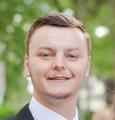
The parents of a day-old baby boy who died in 2005 have again been forced to wait to find out how he died after his inquest was adjourned for further testing.

The inquest into the death of Riyad Ali, who survived for less than 24-hours, was due to conclude today at Suffolk Coroner's Court in Ipswich.
However, a late call for further testing of a blood sample forced Senior Coroner Nigel Parsley to adjourn the inquest, which was originally scheduled for July 2019.
Riyad was born on July 15, 2005 by natural delivery at Ipswich Hospital and weighed just 4.8lbs.
After initially receiving normal, healthy scores for his heart rate and blood sugars he deteriorated quickly and died the following day.

His mother, Bilkis Ali, said she was told her son's death had been caused by inborn error of metabolism caused by a genetic condition likely to have resulted from her 'cousin marriage'.
The condition meant his body struggled to produce energy from the mitochondria within his cells.
Due to the diagnosis, no post-mortem examination had taken place and it was not until several years later that Mrs Ali found out a serious incident investigation had been carried out without her knowledge - at which point she requested an inquest to find out the true cause of his death.
The inquest heard evidence from specialist doctors who said they believed Riyad died as a consequence of metabolic problems, but questions over the time a blood sample was taken - the results of which were cited by the medical professionals - cast doubt over the cause of death.
It was said that further testing by an endocrinologist was needed before an accurate conclusion could be reached.
Earlier, consultant paediatrician Dr Pravin Desai who was asked to review notes made at the time of the death said he did not think the infant died of sepsis, respiratory or cardiac problems, concluding that by a "process of elimination" he died due to a metabolic problem.
His view was backed by Dr Simon Hannam, a neonatal specialist working at Great Ormond Street Hospital.
He said that due to a high level of ammonia and lactate found in the blood sample that he believed Riyad died of a metabolic problem.
The doctor also explained the only action which he thought doctors could have taken to tackle the illness and potentially save the infant would not have been available at Ipswich Hospital.
Dr Simon Holden, consultant clinical geneticist at Addenbrooke's Hospital analysed Riyad's genetics to see if a defect had contributed towards his death.
Dr Holden described a series of tests carried out to examine the DNA of Riyad and his parents.
His team were searching for known genetic defects which affect the production of energy in mitochondria within the baby's cells.
Dr Holden concluded there was no known defect which lead to his death, however he said that 50% of investigations did not lead to a diagnosis.
He also said there were limitations to geneticists' knowledge and that some rare defects are still unknown.
Dr Mike Champion, who eventually advised on the further testing, was called to instruct the court about genetic disorders in babies born from consanginate relationships - from two immediate family members.
He said the chance of genetic disorders occurring in children from consanginate relationships is double that from non-consanginate relationships.
Speaking to the court during the first day of the inquest Mrs Ali said: "I struggled to understand why Riyad had died.
"I was told there was a build up of acid in his body. I was so distraught and crying on my mother's shoulder.
"Because of questions and concerns about my husband, I blamed myself for this.
"I was desperate to have another baby, (but this) really took its toll on myself and my husband Abdul."
Mrs Ali feared future children may suffer the same fate as Riyad.
She had two miscarriages after his death, but said experts at Addenbrooke's Hospital ruled out genetics as a factor.



Comments: Our rules
We want our comments to be a lively and valuable part of our community - a place where readers can debate and engage with the most important local issues. The ability to comment on our stories is a privilege, not a right, however, and that privilege may be withdrawn if it is abused or misused.
Please report any comments that break our rules.
Read the rules here